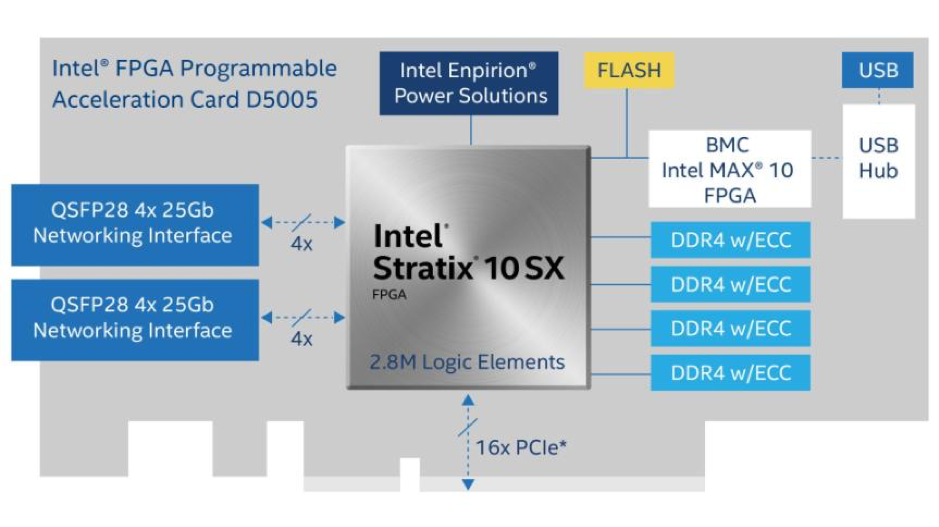 RCC in conjunction with Intel and Dell are pleased to provide an experimental dedicated Field Programmable Gate Array (FPGA) accelerated computing platform for specialised workloads at UQ.
RCC in conjunction with Intel and Dell are pleased to provide an experimental dedicated Field Programmable Gate Array (FPGA) accelerated computing platform for specialised workloads at UQ.
This platform will be available as part of UQ’s Wiener supercomputer, running two Intel PAC D5005 accelerators (previously known as the Stratix 10 SX) in a single dual socket Intel Xeon Cascade Lake node.
FPGAs are a flexible device used in electronic circuits. They are semiconductor logic chips that a user can program or reprogram. They are unlike Application Specific Integrated Circuits (ASICs), which are custom manufactured for set functions.
Researchers who would most benefit from using an FPGA include those using bioinformatics, cybersecurity research frameworks, medical imaging, voice recognition, cryptography, digital signal processing, device controllers, software-defined radio, random logic, ASIC prototyping, computer hardware emulation, integrating multiple SPLDs, filtering, communication encoding, and more.
UQ’s new FPGA platform is in line with RCC's Accelerated Supercomputing Strategy.
The D5005 supports both inline and lookaside acceleration, offering inline interfaces up to 100 Gbps. It offers acceleration capabilities across various domains including cybersecurity, streaming analytics, video transcoding, AI and genomics. The units contain a 26.3 Gbps SERDES (serialiser/deserialiser) with 2,800,000 logical elements per board, coupled to 11,520 digital signal processing (DSP) blocks. The peak floating-point performance of each board is 10 teraflops at single precision.
Optimising an application for a FPGA usually requires significant algorithm re-design, and implementation using a range of novel compilers and software tools.
RCC is now taking calls from interested parties and researchers who will be able to benefit from the FPGA. Please contact the RCC Support Desk.



